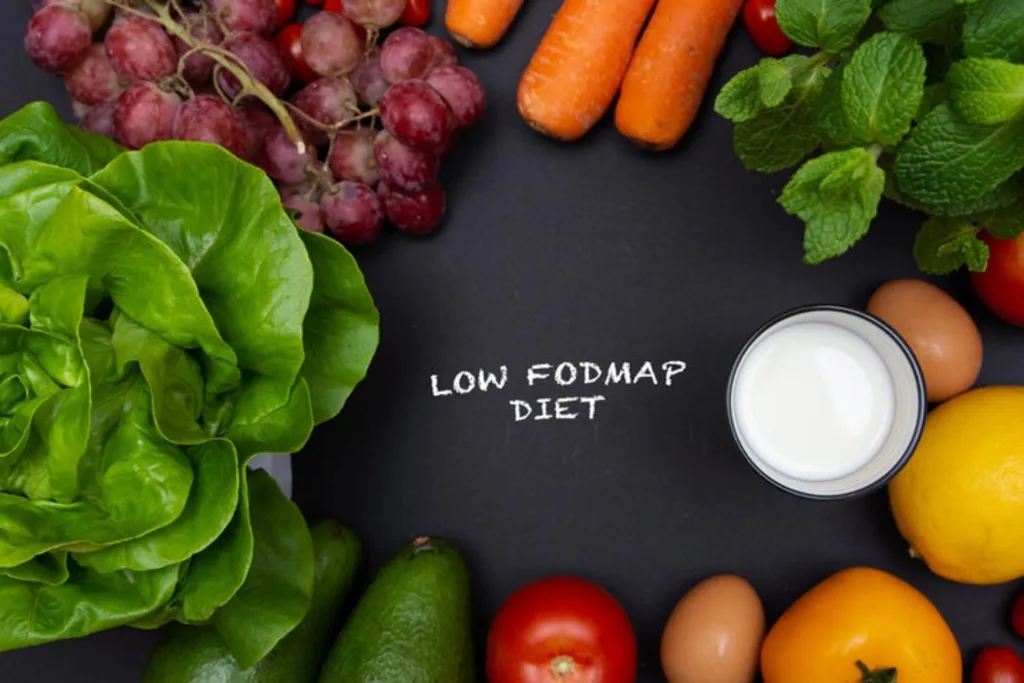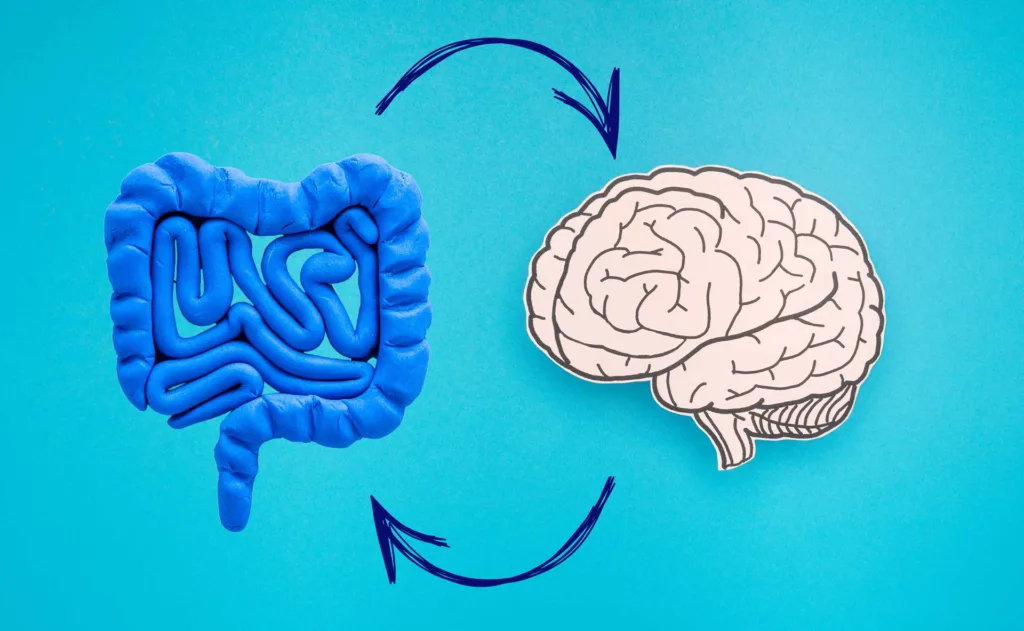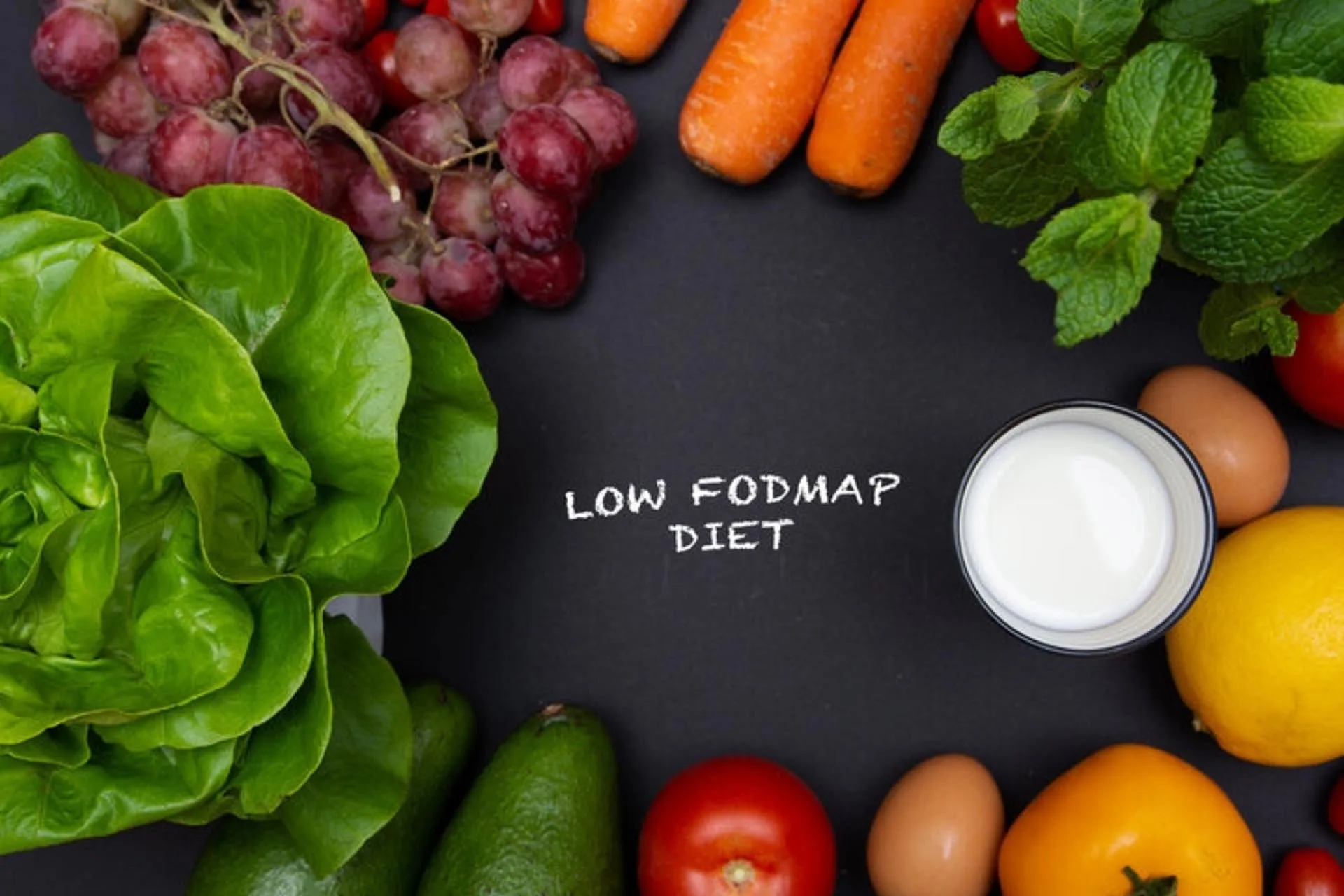The low FODMAP diet is a relatively well researched diet for IBS. Studies show that the low FODMAP diet can ease symptoms in about 2/3 of cases in varying degrees (1). But that’s just it – this diet is not a true treatment for IBS as it can only manage symptoms and not the cause of IBS. But more on that later.

The idea behind the diet is that FODMAPs (fermentable oligosaccharides, disaccharides, monosaccharides and polyols), which are naturally more difficult for the body to digest, are minimized in the diet and then brought back one FODMAP group at a time. This is because you want to only avoid those FODMAP groups that trigger symptoms – it’s not usual that all FODMAP groups are the problem. Because these fibers don’t digest well, they attract water into the intestines and are fermented (digested) by your gut microbes, both of which can cause bloating, discomfort and potentially diarrhea/constipation.
The thing is, this happens to everyone eating FODMAPs, especially in large amounts. The reason why people with IBS so often find these fibers problematic is that they have visceral hypersensitivity - they feel everything going on the intestines more strongly. Even normal things in the gut can cause bloating and pain, when normally you wouldn’t feel anything at all.
It’s important to know that FODMAPs are not bad for you. They feed the healthy gut bacteria in the large intestine, which is actually very good for your health. Avoiding FODMAPs gives the gut bacteria less food to process, which reduces their gas production and in turn gut symptoms. Unfortunately, studies have noticed that some beneficial bacteria species are reduced on the low FODMAP diet probably for this reason.
This is one reason I’m not the biggest fan of the diet. Other reasons are:
- The potential for food fears: there is a risk that you begin labeling high FODMAP foods as bad, which can lead to fear toward these foods. Fear is not helpful for gut function.
- Increased stress: the low FODMAP diet is not the easiest diet to follow. If you want to try the diet, always make sure you understand what you are doing, and even better, get guidance from an expert dietitian. Even then the diet tends to cause stress, and stress causes IBS symptoms, so following the low FODMAP diet can be counterproductive from this standpoint.
- It doesn’t treat the underlying cause: a problem in the gut-brain interaction. Perhaps, if your symptoms improve on the diet and you feel relief and reduced stress from the improvement, this can help mend the disrupted communication between the gut and the brain. But it’s not the diet change that truly did it, it’s the feelings and thoughts that followed that made the difference.
- Nutrient deficiencies: if you only cut foods out and don’t bring the right low FODMAP foods in, there is a risk of not getting enough of all the nutrients you need. Malnutrition is never supportive of gut health.
- Often there are bigger fish to fry than your diet when it comes to IBS management. If your lifestyle is not supporting your gut health, diet changes likely have a very limited impact on your symptoms. If you don’t sleep enough or if you are very stressed out for example, IBS symptoms may not be affected in any way by the low FODMAP diet.
- The low FODMAP diet asks you to avoid healthy foods, like whole grains and certain fruits and vegetables.
- Potential negative effects on your gut microbiome as mentioned above
What you eat is highly important for gut health, of course, but to me, going on the low FODMAP diet is not the best way to go, especially not as the first thing to try. Chances are I’d still recommend some individualized diet changes, but nothing too drastic to avoid the above problems. In addition, focusing on the root cause will be vital to get real IBS symptom improvement.

How do you do that? You need to think about yourself as a whole – everything that is going on in your life and your body is affecting everything else. It’s not just about food.
My best advice? Get in touch with me to see what might be the most important diet and lifestyle changes for you. Book your free session here.
Or, if you prefer to work on your own, I have the perfect self-care program for you: IBSwise. It goes over everything worthy of knowing about IBS, with many tools that you can try right away to ease your symptoms – tools that focus on mending the gut-brain communication to achieve real results. It’s an awesome program and I highly recommend it. The price is going up on 1/1/2025, so get enrolled now!
You can get started on calming the real problem behind IBS by practicing a breathing exercise like box breathing at least once daily. Go to Instagram to my account @ibsandstressdietitian and find there a short instructional video on box breathing pinned at the top of my posts. My clients are benefiting so much from practicing breathing exercises, so this tip is my gift to you.
Wishing you all the best,
Anna-Kaisa

PS. Did you get my free “5 Easy Ways to Beat the Bloat” ebook? If not, go here to get it!
References:
- Manning LP, Yao CK, Biesiekierski JR. Therapy of IBS: Is a Low FODMAP Diet the Answer? Front Psychiatry. 2020 Aug 31;11:865. doi: 10.3389/fpsyt.2020.00865. PMID: 33110411; PMCID: PMC7488954.

